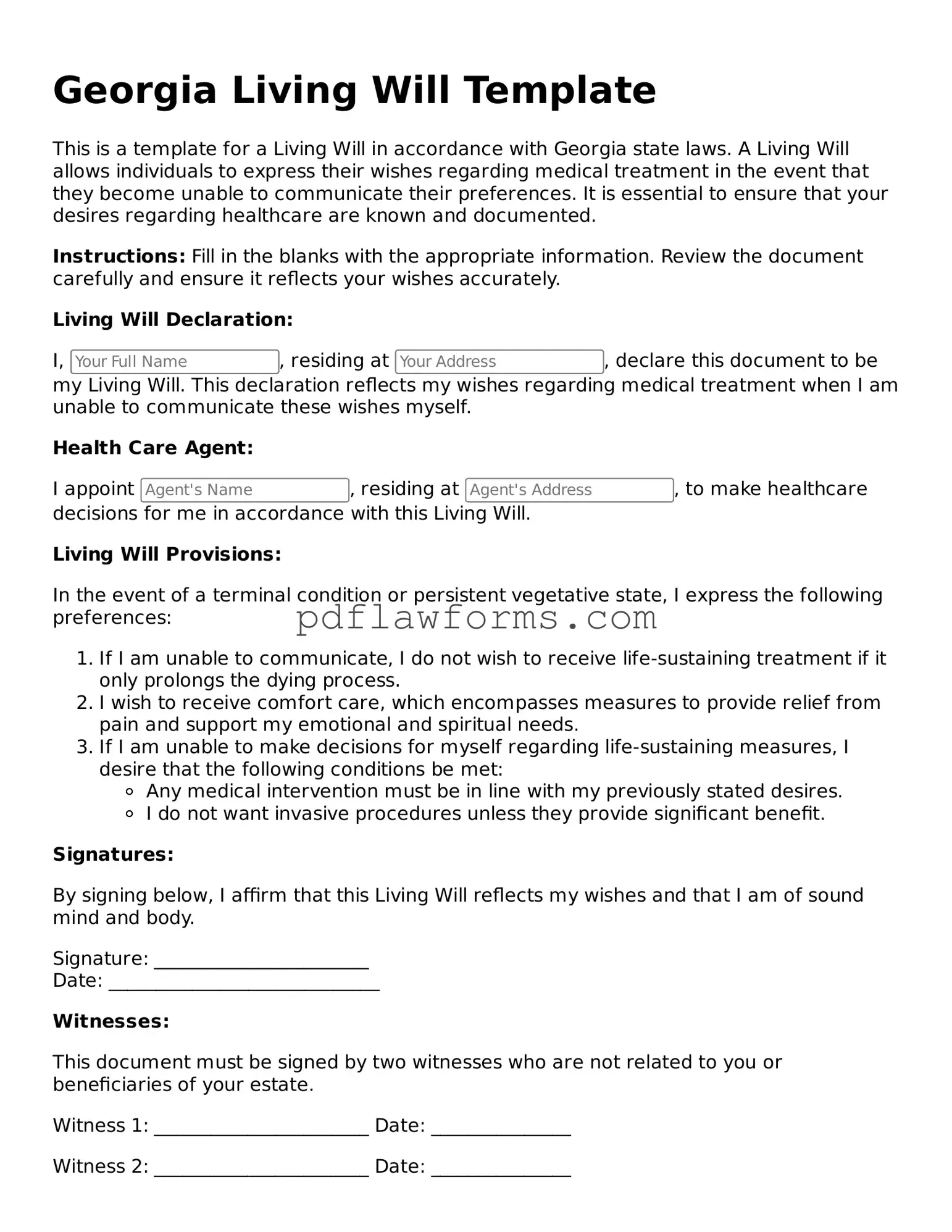Filling out a Georgia Living Will form is a crucial step in ensuring that your healthcare wishes are respected when you can no longer communicate them yourself. However, many individuals make common mistakes that can lead to confusion or even legal challenges. Understanding these pitfalls can help you create a clear and effective document.
One frequent error is failing to specify treatment preferences clearly. Individuals often assume that general statements about wanting to avoid life-sustaining treatment are enough. However, without specific instructions regarding particular treatments, healthcare providers may struggle to interpret your wishes. It is vital to articulate your preferences in detail to avoid ambiguity.
Another mistake involves neglecting to date the document. A Living Will should include the date it was signed. Without this information, it can be difficult to determine the validity of the document, especially if there are multiple versions. Always ensure that your Living Will is dated to establish a clear timeline of your intentions.
Some people forget to have the document witnessed or notarized as required by Georgia law. A Living Will must be signed in the presence of two witnesses, or it can be notarized. Failing to meet these requirements can render the document invalid. Make sure to follow the legal formalities to ensure your wishes are honored.
Additionally, individuals often overlook the importance of discussing their wishes with family members and healthcare proxies. A Living Will is not just a legal document; it is also a communication tool. When loved ones are unaware of your preferences, they may feel uncertain or conflicted during critical moments. Open conversations can provide clarity and comfort.
Another common oversight is using outdated forms. Laws and requirements can change, and using an old version of the Living Will form may lead to complications. Always check to ensure that you are using the most current form available to ensure compliance with Georgia law.
Lastly, many individuals fail to keep copies of their Living Will in accessible locations. Once the document is completed, it is essential to distribute copies to your healthcare proxy, family members, and your primary care physician. If the document is not readily available when needed, it may not serve its intended purpose.
By avoiding these mistakes, you can create a Living Will that accurately reflects your healthcare wishes and provides peace of mind for you and your loved ones.

